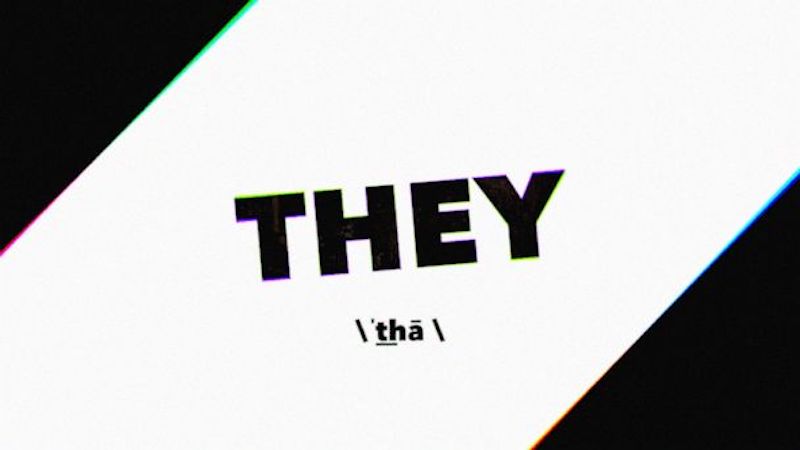
It was a big year for the word “They”.
The word was chosen by Merriam-Webster as the word of the year for 2019 and by the American Dialect Society as word of the decade.
Ben Zimmer, chair of the American Dialect Society’s New Words Committee and language columnist for the Wall Street Journal, noted a growing recognition of the use of ‘they’ for those whose identities don’t conform to the binary of ‘he’ and ‘she’.”
As Merriam-Webster puts it, “they” has been used to refer to one person whose gender identity is nonbinary.
The American Psychological Association’s blog officially recommended that singular “they” be preferred in professional writing over “he or she” when the reference is to a person whose gender is unknown or to a person who prefers “they”.
And if you’re not quite sure what nonbinary means (like me), here is an explanation from Wikipedia:
Non-binary, or genderqueer, is a spectrum of gender identities that are not exclusively masculine or feminine—identities that are outside the gender binary. Non-binary identities can fall under the transgender umbrella, since many non-binary people identify with a gender that is different from their assigned sex but does not necessarily, as some intersex people are also non-binary. Non-binary people may identify as having two or more genders (being bigender or trigender); having no gender (agender, nongendered, genderless, genderfree or neutrois); moving between genders or having a fluctuating gender identity (genderfluid); being third gender or other-gendered (a category that includes those who do not place a name to their gender).
Words matter, and if words like “they” and “nonbinary” are the proper words to be used to show respect and inclusion, then I need to be aware of such words, and make sure I am using them appropriately.
*image from Good Morning America

This is an important thing for all writers to know, and even more important to respect through the words we choose to use. Thank you for putting it out there! “They” used to be the easiest way to describe someone who is “not us”. Now it can be used as a term of inclusion for those so easily marginalized by antiquated societal beliefs and biases. I am glad I lived long enough to see being different become something worthy of celebration!
LikeLike
I initially thought that “they” was being used as an exclusion word. Good to know that the meaning of it is somewhat different in this context.
LikeLike
interesting perspective that I hadn’t thought about in terms of how “they” has turned from a negative connotation to one that is more welcoming…
LikeLike
They really like me! – sally field
LikeLike
a new twist on a classic line!
LikeLike
))
LikeLike
“They” … simply “The” with a “y”. Makes sense.
LikeLike
or “t” with “hey”…
LikeLike
Lol… I like your version better
LikeLike
I find it interesting how people also use “they” to describe some indefinite group. “They” like the four horse in the next race at Belmont. “They” say it’s going to rain tomorrow.
LikeLike
yes, multiple meanings for the same word; I am sure it will cause confusion on some occasions.
LikeLike
I’m sure that eventually in your position you will come across this.
LikeLike
I’m sure I will, Tandy.
LikeLike
My mind is still wrapped around “he or she.” I am old school with my grammar.
LikeLike
I think this will actually make writing a bit easier; over the past 50 years I have struggled with the sometimes arbitrary use of he or she; using “they” will be so much easier.
LikeLike
I think this will actually make writing a bit easier; over the past 50 years I have struggled with the sometimes arbitrary use of he or she; using “they” will be so much easier.
LikeLike
Word of the year. Interesting. Times and meanings change.
LikeLike